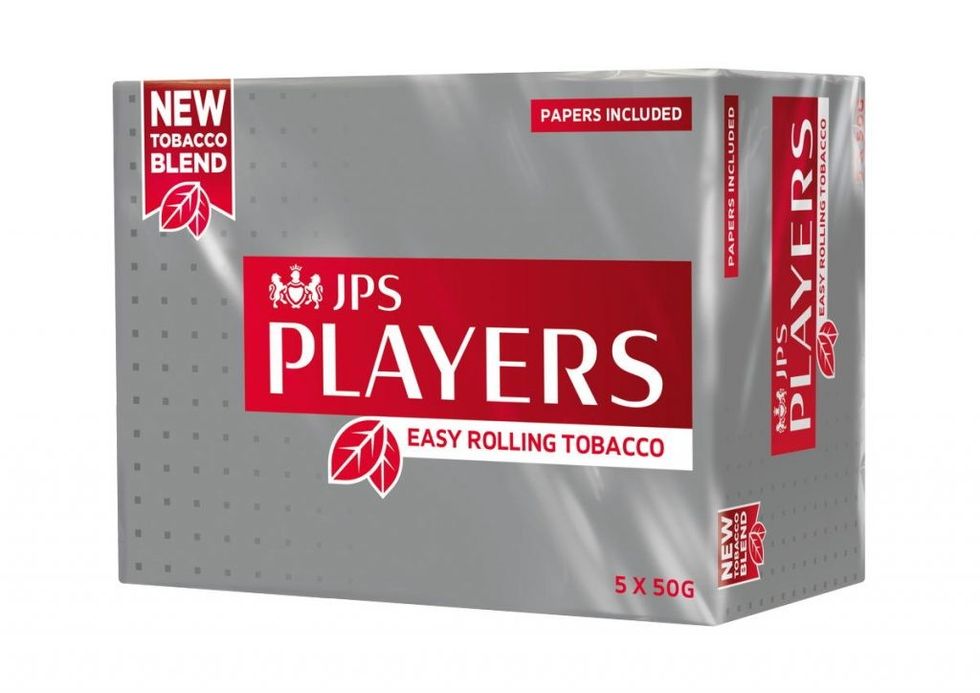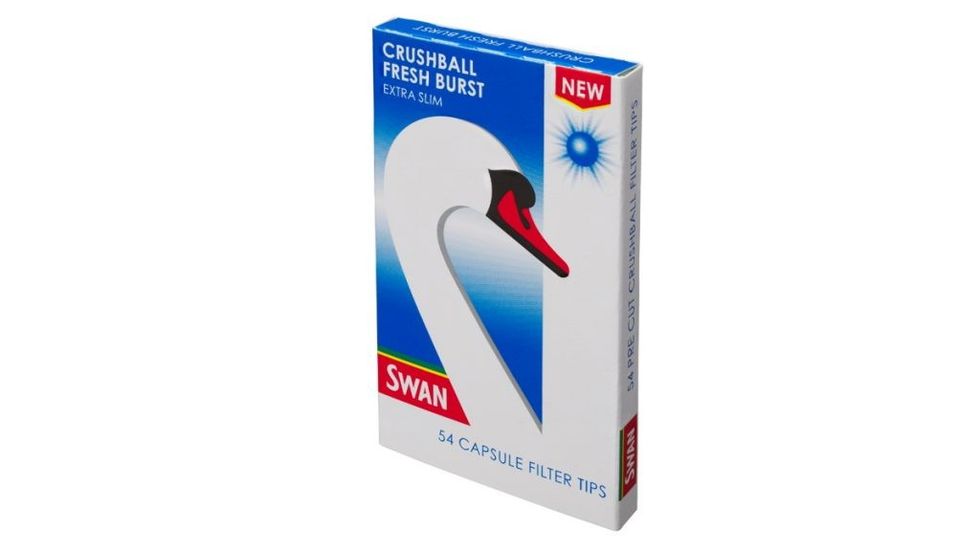Hand-rolling tobacco was never just about saving money. For devotees of the self-made cig, the economics were a welcome advantage, but the truth was that the tobacco – fresh and aromatic – was always the true selling point. You couldn’t get away with a second-class product when the customers literally felt it between their fingers. Words that come to mind when thinking about hand-rolling are vintage and artisanal, the old and best way of smoking a cigarette – a cowboy cigarette put together just the way you like it – made to-measure rather than off-the-peg; craftsman not factory.
As government policies and taxes have eaten away at the consumer’s ability to enjoy factory-made cigarettes (FMCs) over the years, the sector has seen suppliers and smokers attempt to retain their enjoyment in various ways. One of these was to move to value FMCs and the other was to smoke more RYO tobacco. In the old days there were cigarette smokers and “rollie” smokers and they were mostly separate. Now that is no longer the case and smokers are more likely to utilise both ready-made and hand-made versions.
This year, though, with inflation and taxes both up, it could mean that more people than ever will be trying out the finest tobaccos money can buy.
RYO goes mainstream
The UK the tobacco market, which constitutes an important element of c-store sales alongside the increasing vape sector, is worth an enormous £14 billion per year, split pretty evenly these days between FMC and RYO – at 53 per cent and 47 per cent respectively.
“Overall, we’re seeing continued movement towards low priced propositions across the entire category as consumer demand for value continues to drive tobacco purchasing patterns,” says Duncan Cunningham, UK Corporate Affairs Director at Imperial Tobacco & blu. “As part of this shift, the lower price tiers now account for the majority of sales, with the sub-economy segment making up 63 per cent share of FMC, and the economy segment accounting for 51 per cent of RYO, with both value segments growing at 4 per cent YOY.”
With the tobacco market being populated by value FMC and RYO, it behoves retailers wishing to maximise sales to look afresh at what they can offer customers in terms of tobacco packs and the all-important accessories that accompany them.
Cunningham emphasises that the transition towards lower-priced tobacco is a “key trend” that retailers should be prepared for. He says that tobacco shoppers have an average basket spend worth £19.60 vs. non-tobacco at £11.40, and they also visit more frequently, averaging 2.9 visits a week in comparison to 2.5 for other shoppers: “Convenience retailers are in a strong position to benefit from these increased visits and basket spend in the years to come, with figures forecasting almost 13 per cent growth in Convenience over the next 5 years.”
From this perspective the tobacco category is in very good health despite declining smoker numbers. The main point is that they are all looking for good value, and even within RYO the value segment is over half, with mid and premium blends making up the remaining sales, at 35 per cent and 14 per cent of the loose tobacco market.
What this means is that there are very good products available from the tobacco companies who are very well aware of howe important it is to cater to the growing RYO demographic, many of whom have migrated to loose tobacco from FMNCs.
Ross Hennessy, Sales Vice President at JTI UK, explains that the brands in RYO, which also feature well-known loose-tobacco incarnations of well-loved FMC names, are doing extremely well, with value the watchword. “Price remains a key factor for existing adult smokers,” he confirms.“Retailers should therefore stock up on Value RYO products, such as Sterling RYO, the leading Value RYO brand.”
Sterling has indeed established itself front and centre in the RYO gantry, and is now available in a very practical 50g package.
“Building on the success of the 30g, JTI has announced the new 50g format, which offers the same fantastic RYO quality at a competitive RRP of just £23.35.” The 30g variant costs £13.65.
Hennessy continues: “JTI’s decision to release this new, larger format of Sterling Essential Rolling Tobacco reflects the increase in demand for RYO, with the category growing 7.4 per cent year on year,and generating sales of £3.9 billion a year. Sterling Rolling is the UK’s second fastest growing RYO brand,showing that the demand for value tobacco continues.”
The 50g is a “less for less alternative” just like its 30g partner. This means keeping the price lower by not including filters or papers. By happy design, this affords smokers the freedom to purchase their preferred tobacco accessories, of which there is a great selection on offer from companies such as Republic Technologies and Clipper.
Duncan Cunningham, meanwhile, speaks enthusiastically of Imperial’s top-notch RYO brands on offer.
“Our new JPS Players Easy Rolling Tobacco is a great example of what retailers should be stocking to cater for these increasingly value savvy shoppers,” he says. “JPS Players Easy Rolling Tobacco is an exciting new blend of fine cut tobacco that offers an easier rolling experience and benefits from the brand recognition of one of the UK’s best-selling cigarette brands.”
This new JPS Players Easy Rolling Tobacco features a more vibrant colour and lower levels of moisture, making the blend easier to handle and to roll. The range is available to buy in 30g and 50g and priced at £12.95 and £21.20, and these each come with a set of quality rolling papers.
Another RYO brand that is a must-stock for any retailers tapping into the value trend is JTI’s Riverstone, which was recently repositioned to sit within the rising economy RYO segment alongside JPS Players, with its 30g and 50g pouches also priced at £12.95 and £21.20 and including both papers and filters for the ultimate in convenience. With these products, Imperial is clearly targetting a growing market, making the brands essential for canny c-store retailers.
JTI also retains the option for smokers who want to find everything they need in the pouch – the so-called 3-in-1 format.
“Our Sterling 3-in-1 Rolling Tobacco offers existing adult smokers the fuss-free and convenient format they want, with tobacco, papers and filters in one handy pouch,” says Hennessy.“Retailers should look to stock up on Sterling 3in1 to provide an option for customers looking for great value and extra convenience.”
Selling great products alongside
Gavin Anderson, Sales & Marketing Director at Republic Technologies (UK) Ltd, is a great voice for telling retailers exactly what they need to hear: that tobacco sales can be driven higher when they are sold alongside the best accessories money can buy, making the whole experience more satisfying and enjoyable, adding choice, colour and quality.
The increasing shift to RYO amongst smokers is continuing to provide major profit opportunities in this category for convenience retailers, with the accessories category currently worth £320 million and showing YoY growth of +4.8 per cent (even as the overall tobacco category slowly shrinks YoY by around 3 per cent – highlighting the RYO opportunity).
“The pandemic and subsequent lockdowns brought more shoppers than ever to local convenience stores, as people chose to stay local and minimise supermarket visits,” explains Anderson.“This gave retailers an even bigger opportunity to drive visibility of margin-boosting tobacco accessories products.”

He says that by ensuring they are fully stocked with a range of tobacco accessories from trusted brands, retailers can cater for every customer and drive sales: “As category specialists, we’re continuing to innovate. Not just with NPD but with a renewed focus on merchandising solutions, enabling retailers to highlight NPD and increase visibility of best-selling products.
“Our iconic brands – including Swan, Zig-Zag and OCB – have considerable history in the market and are synonymous with quality and value for money. This, combined with our team’s valuable expertise in the category, means that we are well placed to add real value to convenience retailers.”
Anderson says that there has been a surge in demand for category-boosting products such as OCB Virgin Slim, RRP: £1.04 and OCB Virgin Slim & Tips, RRP: £1.63.
Republic also supplies Swan, the brand of choice for many RYO shoppers, and the Crushball filters have built up a strong and loyal consumer following since legislation changed in 2020, says Anderson. We are still seeing more and more shoppers actively looking for this bestselling SKU in their local store.
Swan Cool Burst and Fresh Burst Crushballs come as two-part sliding packs containing 54 filters, both with an RRP of £1.29, and are available in slim vertical shelf-ready boxes.
When you are ready to light up, Clipper lighters are the perfect solution. “Clipper is thriving,” says UK General Manager Miguel Toral, when contacted by Asian Trader. “Our brand is leading with 42.6 per cent of market share with three percentage points increase MAT. Other studies show that Clipper still has the strongest brand awareness within the UK lighter market, with a significant lead in spontaneous awareness. Although the lighter market is saturated with many different brands, Clipper remains at the top spot as the UK’s No.1 lighter.”
Despite a pre-pandemic drop in lighter sales, Clipper remained in demand,“and when confidence was restored in the economy, our sales figures were back rising again. Although there has been this decrease in the overall lighter market, Clipper has still managed to remain strong and increase its sales figures,” he adds.
New NPD includes the Clipper utility lighter TUBE PLUS, which is an improved version of previous utility lighters. Not only has the TUBE PLUS been made with more resistant materials, it also has double the gas capacity compared to the regular Tube. This product is now part of the collections range, meaning it will feature unique print finishes as seen with Clipper’s other classic range.
Sustainable smoking
All the producers are going full-steam ahead in trying to build sustainable processes and products. JTI’s Hennesy says that its Sterling Essential Rolling Tobacco 50g now comes in paper insert pouch packaging which contains less aluminium, “and the blend generates less leaf waste compared to other RYO brands due to its unique whole leaf blend.”

Clipper likewise is acutely aware of how its products can fit into this new eco-awareness: “We are certainly seeing a more intelligent shopper who is considering the environmental impact in their choices,” Toral agreed. “Clipper offers consumers the choice to reduce their carbon footprint, with full reusability. With 50 per cent of our consumers making use of our reusability already, we expect to see these figures increase as more environmental awareness gets shared. With Clipper, there is no need to contribute to the vast amounts of plastic waste, as our iconic CP11 lighter offers you the ability to refill, re-flint and then reuse.”
Republic Technologies, meanwhile, reassure that, “With growing demand for more natural products and reduced packaging, Republic Technologies is increasing its focus on sustainably sourced products.” Its unbleached papers are made using OCB natural gum, which is sustainably sourced from African Acacia trees.
Best in store
So many sales go through the eye to the wallet that it is very worthwhile mastering the art of the glorious gantry and attractive shelf displays. Clipper displays such as carousels, four-tier stands and shape displays have become a real asset to retailers across the UK. They offer great value (with between 20-48 free lighters, and increase sell-out rotation by 50 per cent). and are all designed for countertops, making full use of precious space..
Kieran Marsh, Merchandising Design Lead Manager at JTI UK, agrees that displays sell well, and JTI is on top of it: “For retailers, there is now a larger category solution available, which includes backlighting where vaping, next-gen and tobacco products can be stored in the same gantry,” he says.
“The solution incorporates the entire [tobacco-vape] category and is available in a variety of widths; If this is of interest, speak to your JTI representative about our new category management solutions.”
Imperial’s Cunningham starts from the principle that no two stores are the same,“So it’s important to take time to consider what customers are buying most frequently, or not buying at all, and then adapting the range accordingly.”
He says, for example, that if a store has a really strong RYO customer base, it might want to consider offering a bigger range of filters, papers, flavour cards and lighters – something Anderson would endorse.“While, if they have more cigarette shoppers than RYO, they may want to offer a smaller range and focus this mostly on lighters and flavour cards.”
Cunningham adds that, given the value of tobacco shoppers in terms of the wider sales they generate in store, “We would recommend retailers make it clear that they sell tobacco by displaying products within an installed gantry. Even if retailers choose to stock tobacco products under the counter, it’s really important there’s signage that informs shoppers that tobacco is sold in store to avoid missing out on sales.”
Lastly, he emphasises that it is really important staff are knowledgeable about the range of accessories stocked so they are well equipped to answer any questions and offer advice to any shoppers that need it.




